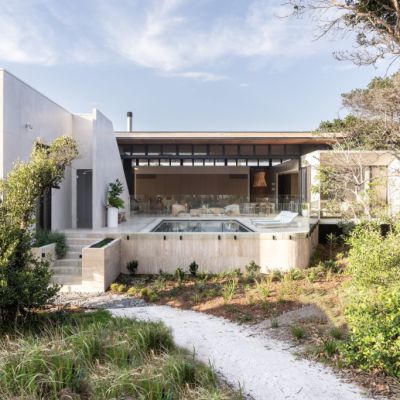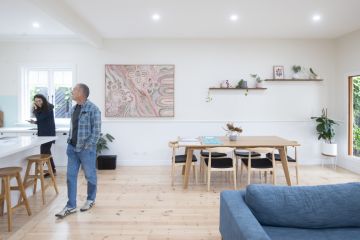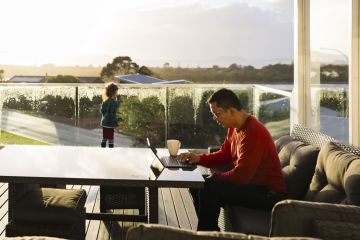Should you buy a holiday home while on holidays?
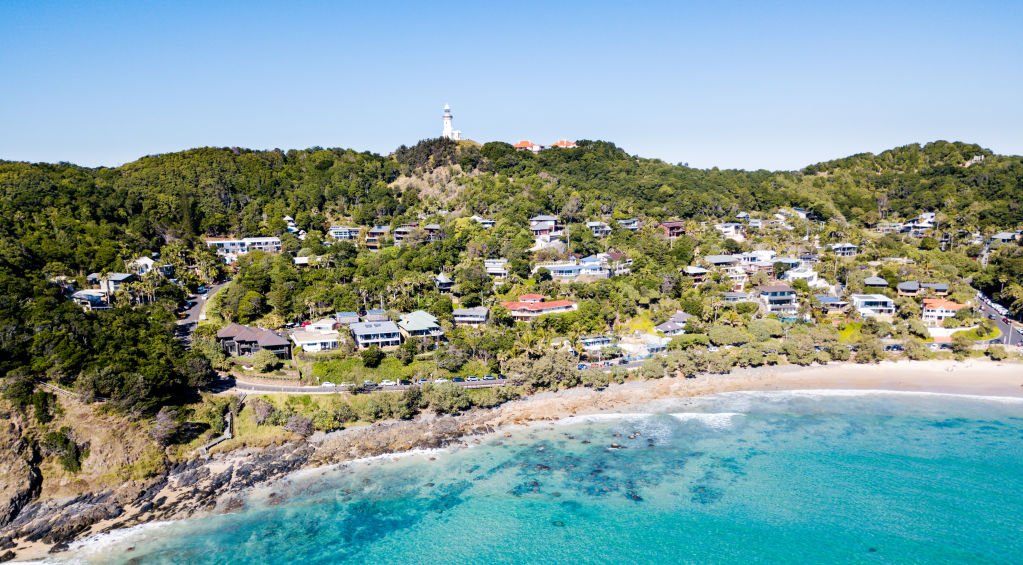
Ahhhh, Copacabana. A glorious crescent of sand, waves made for surfing, and the chance to spot whales from Captain Cook Lookout and its purpose-built platforms on the northern headland. What’s not to love?
A few years ago, Will Andrews spent Christmas and New Year’s with family in the Central Coast idyll and was beguiled by the area’s natural beauty.
“We rented a house and just obviously fell in love with the area,” he tells Domain. Andrews and his partner were so captivated, they asked the Airbnb owners if they would consider selling.
It was a firm no from the owners, who were equally enthralled by Copa’s charms, but Andrews now had his mind set on a holiday home.
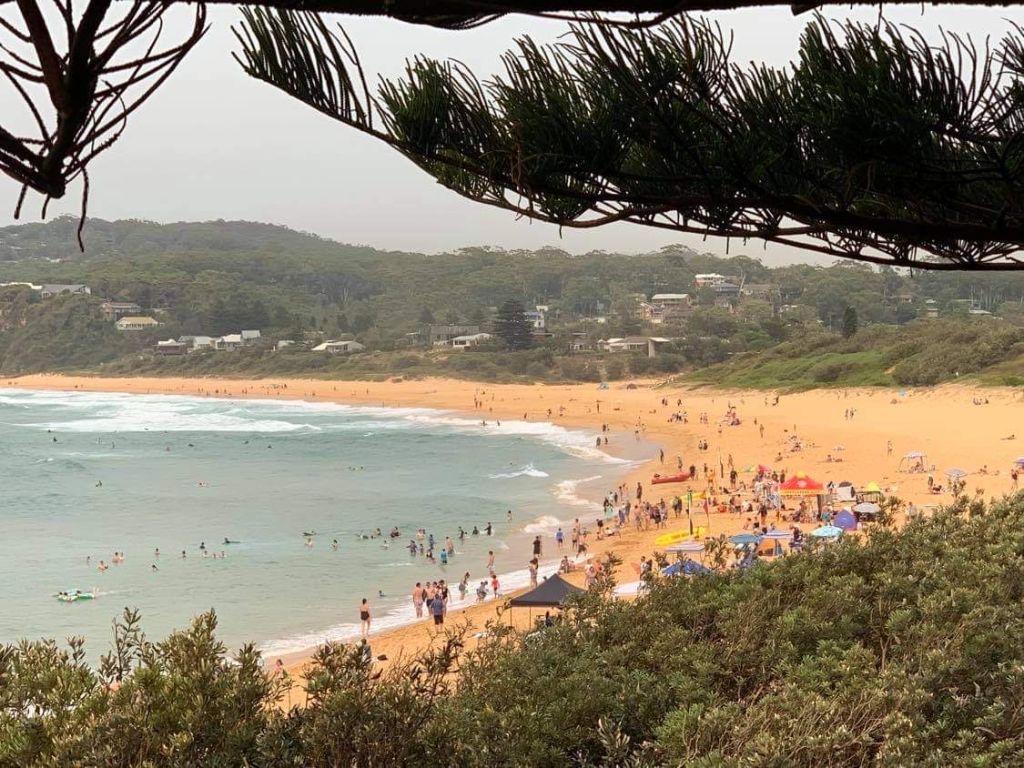
It’s a scenario that has played out for many Aussies intoxicated by a summer sojourn or blissed out in the calm cocoon of a winter weekend getaway.
A harmless stroll past a real estate window or an unplanned open-home visit while on holiday can sometimes result in an impulse purchase. Like any major financial decision, research is key to making a successful investment, even if you don’t plan on renting the property out.
As an agent with One Buyers Agency, Andrews knows more than the average punter about property investment. He had already been on the hunt for an investment property before his Copacabana getaway, and knew all the fundamental boxes to tick before signing a contract.
After several months of research, he bought a tired, five-bedroom property in the neighbouring suburb of Macmasters Beach, with grand plans for holiday letting and a staged renovation.
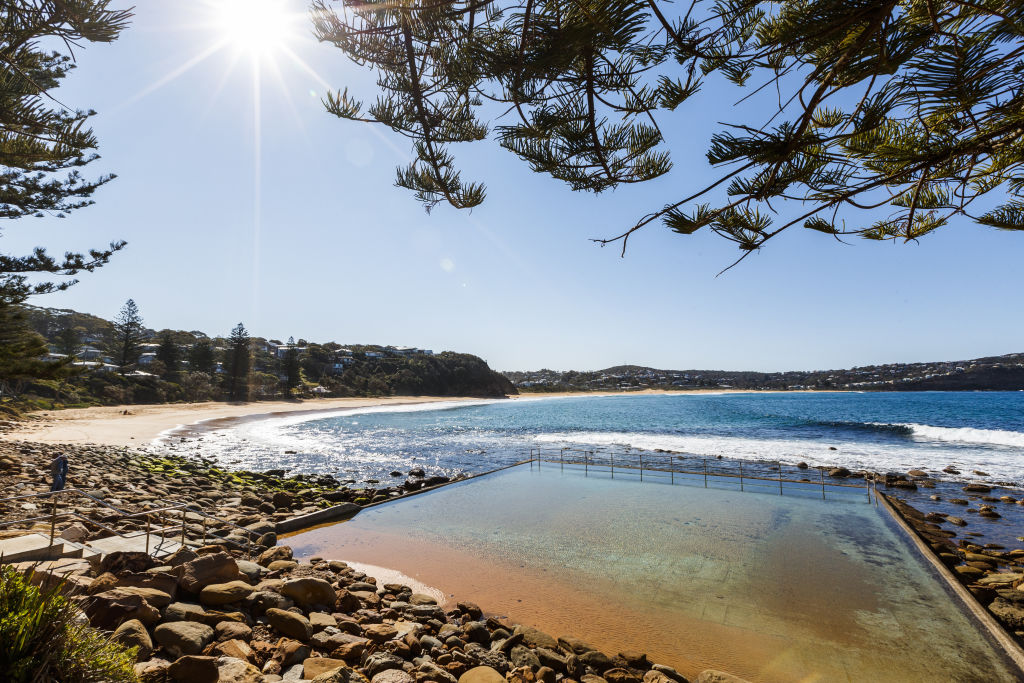
But even the best buyer’s agent couldn’t have predicted COVID.
Fortunately, Andrews and his partner took the opportunity to temporarily move in and fast-track the house makeover, so it was ready for guests when lockdowns were lifted.
They’ve since been the proud owners of a highly successful Airbnb generating more than $100,000 in holiday rental annually. Andrews and his family regularly block out time on the calendar for themselves, fulfilling their original dream of owning a beachside getaway.
Now they’re about to re-list the property and, following the post-COVID property price boom, stand to make a substantial capital gain.
But not all holiday home buyers have the same positive experience.
Buyer’s agent explains why multipurpose holiday homes are the new norm
Kate Hill, a buyer’s agent with Advisable, says holiday homes can be a tricky asset, with clients wanting to have it all. This is fine if you’re not relying on rental income to cover a mortgage and/or other costs, but most buyers don’t have that luxury.
“They would be looking at capital growth from a rental property generally, with a side order of, ‘Oh, and I can go and spend a month there a year!’” she says.
“Traditionally, we would have said don’t touch it with a barge pole if it doesn’t have all the usual growth drivers in place because, yes, you’ll get massive rental income during the high season but then you’ll experience a significant downturn.”
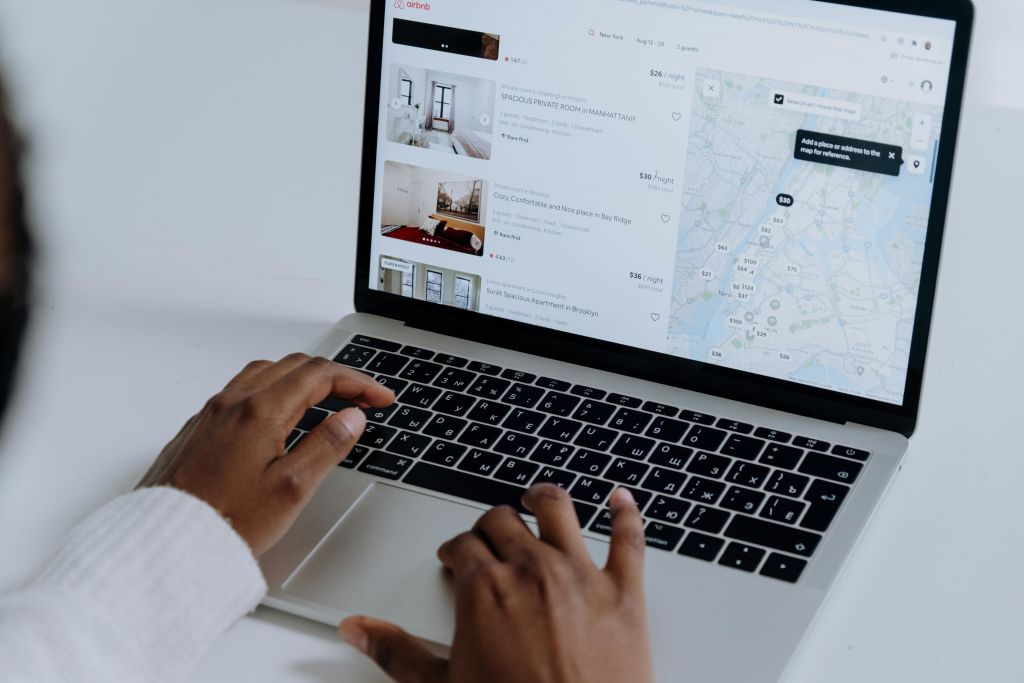
Hill says in the pre-COVID years, after all costs have been taken into account, the typical holiday home will net a lower return than a full-time rental property.
COVID, however, has changed the dynamics of where we live and work, and vacancy rates have plummeted to all-time lows, so Hill says there’s now more opportunity for a profitable bush or beach-style investment if buyers are prepared to carry out sound due diligence.
“I still think it’s dangerous to buy a pure holiday home,” she adds. “It has to have a second use – you need to be able to rent it out to regular tenants year-round.”
That’s exactly the logic Andrews applied to his purchase at Macmasters Beach.
“I think we identified Macmasters because people do want to live there,” he says. “There’s no more land for houses to be built, so it’s all about supply and demand, and being so close to Sydney, and still so much more affordable than the city to live there.”
What to consider before buying a holiday home
Do your research
Platforms like Domain, Pricefinder, council websites and the Australian Bureau of Statistics can be used to analyse price growth, rental returns, holiday homes versus owner-occupied and permanent rentals, infrastructure projects and the local demographic.
“If you’re on holidays, you have to put your emotions to the side for a second and do your research,” Andrews says. “Have prices gone up? Are prices going down? Is there a reason why people are moving here? What is the rental? Is it saturated with Airbnbs? Would I even rent it out? You can track all that data.”
Andrews says it’s critical to understand both the level of competition on the holiday home front and the experience of other holiday home owners in the area.
He messaged Airbnb hosts to ask about booking numbers and spoke to local agents for further insight.
Know why you’re buying
Victoria’s Mornington Peninsula is a magnet for holidaymakers, and Wakelin Property Advisory director Jarrod McCabe says he’s helped dozens of clients own a second home there.
“They may have rented homes in Sorrento for three or four summers, and decided that they really like it down that way and now is the time [to buy],” he says. “And perhaps Sorrento is out of budget, so we might go and look at Blairgowrie or Rye or Rosebud or somewhere back a little bit further along. So there’s been a degree of thought and research put in before committing to that.”
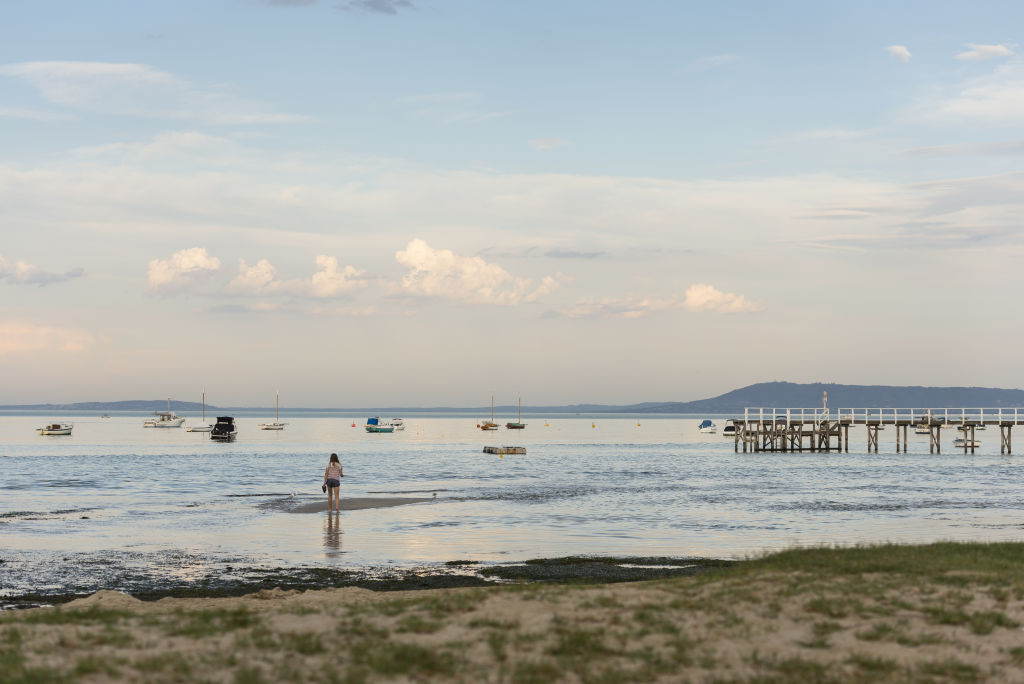
There are two key questions he asks clients. Are you doing this because you want a holiday home? Or are you buying an investment property which is purely for financial purposes?
“It’s not a decision you want to take lightly,” he says. “If you’re going to go down this path, you want to make sure that it’s right, particularly from a lifestyle perspective, because it’s all well and good to enjoy a couple of weeks over the summer, but to get the benefit of buying a property, you’re going to need to use it more than just two weeks a year. Otherwise, you may as well just continue to rent a property for two weeks, which is a lot cheaper to do.”
McCabe also suggests clients think about whether they’re happy to return to the same holiday destination every year, or whether they might prefer a variety of locations.
Understand the costs and tax implications
Hill says holiday home owners are often surprised at the expense of ownership. Many of the usual costs – think property management fees, council rates, strata levies, cleaning and maintenance – are higher than those of a full-time rental property.
McCabe suggests buyers have a conversation with their accountant on both the costs and tax implications of a holiday home. For Victorians, recent changes to land tax thresholds mean holiday apartments that once flew under the threshold may now attract land tax, another substantial cost to consider.
Can you get a loan?
It’s also worth noting that many lenders steer clear of financing properties used for short-term holiday letting.
“Some banks are more conservative than others and it mostly depends on whether you plan to use the property yourself and keep it vacant for the rest of the year or use it as an investment property for short term holiday home letting,” says Home Loan Experts chief executive Alan Hemmings.
“During the off season, holiday homes can be really difficult to sell, which is high risk to the bank if they ever need to sell the property in the event that you default on your mortgage.”
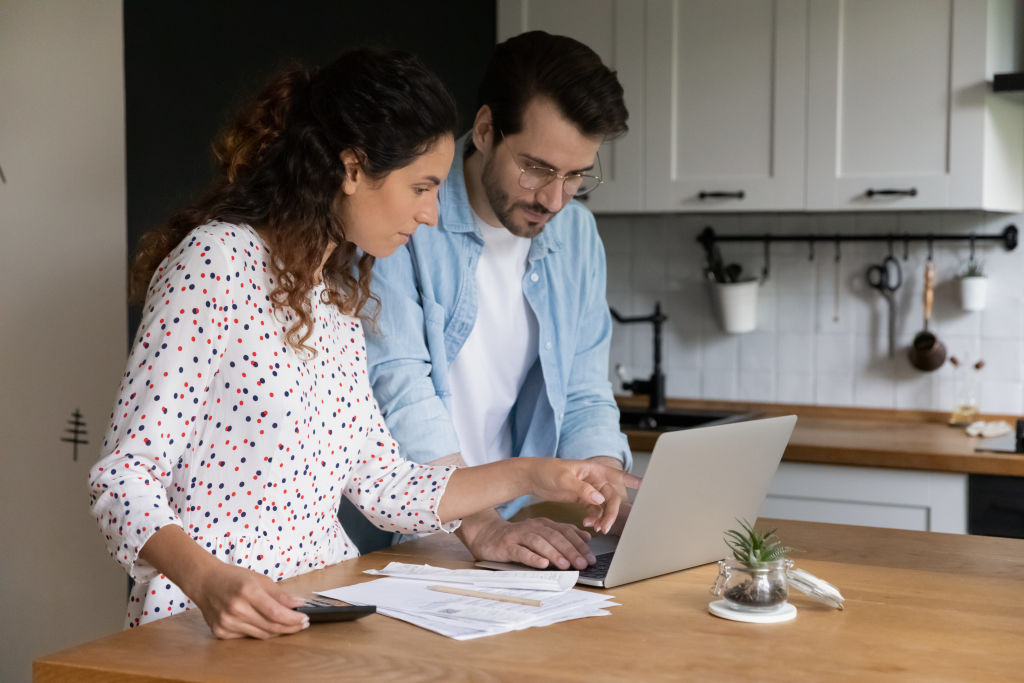
Vacancy rates are also typically high, which means an owner may not have enough income from the property to cover mortgage repayments.
“If you’re relying on proposed rental income to qualify for a home loan then this can have a serious impact on your borrowing power,” Hemmings says.
This can mean a lender that does agree to provide finance may require a higher loan to value ratio in certain postcodes. Hill says if the bank hesitates about the viability of a location, it’s wise for you to think twice too.
Can you get insurance?
You can also expect to pay more for home insurance, with a smaller pool of insurers to choose from.
“Most insurers don’t do home insurance for properties that are vacant for more than 60 days in the year,” Hemmings says.
Holiday homes have a higher risk of break-ins and are often located in regional areas more prone to bushfires or floods.
Ultimately, Hill says, buying a holiday home while still on holiday is unlikely to end well for most of us – there’ s just not the time to do the required due diligence.
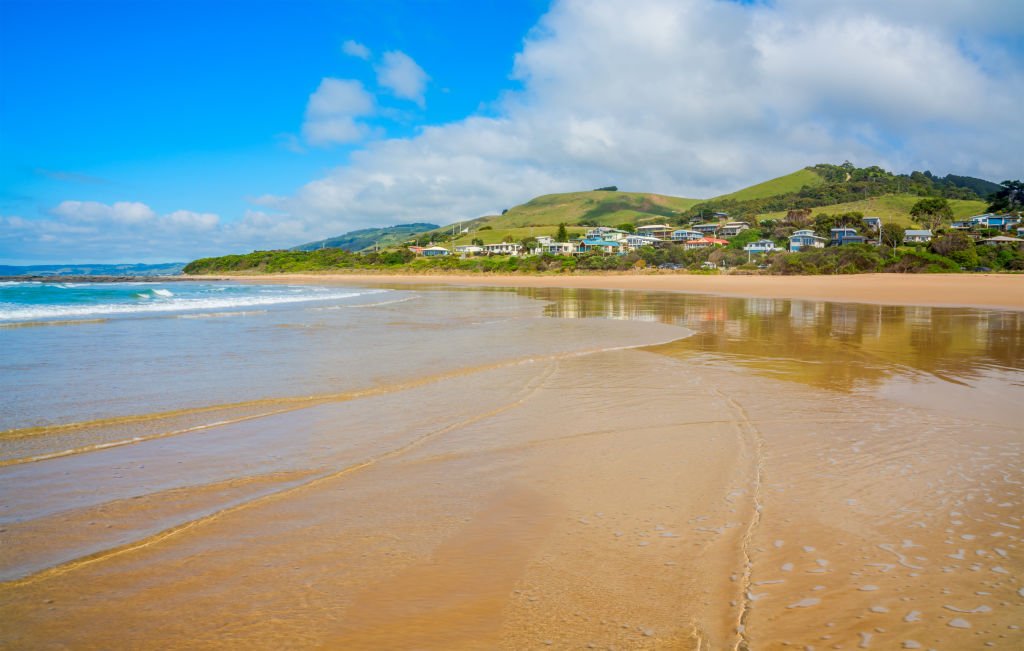
“I’m sure some people stride around with their investment heads on, but when you’re on holiday, generally you don’t,” she says. “You just think, ‘Oh, this is beautiful, relaxed. Oh, wouldn’t it be amazing if we lived here all year round?’
“You’re hedging your bets on the cyclical goodwill of holidaymakers, not the people who actually drive long-term, sustainable property growth.
“Logically in this situation we should ask ourselves: ‘Before I left for this holiday, was I really planning to spend hundreds of thousands of dollars buying a rental property?’”
Hill concedes a holiday home or apartment can sometimes work out well, especially if you’re a high-net-worth individual with lots of disposable income.
“But let’s not trick ourselves into thinking that buying a holiday home or holiday unit is likely to be a better investment than buying a rental property in a thriving, dynamic market, offering strong, predictable income week in week out. It rarely is.”
We recommend
We thought you might like
States
Capital Cities
Capital Cities - Rentals
Popular Areas
Allhomes
More

